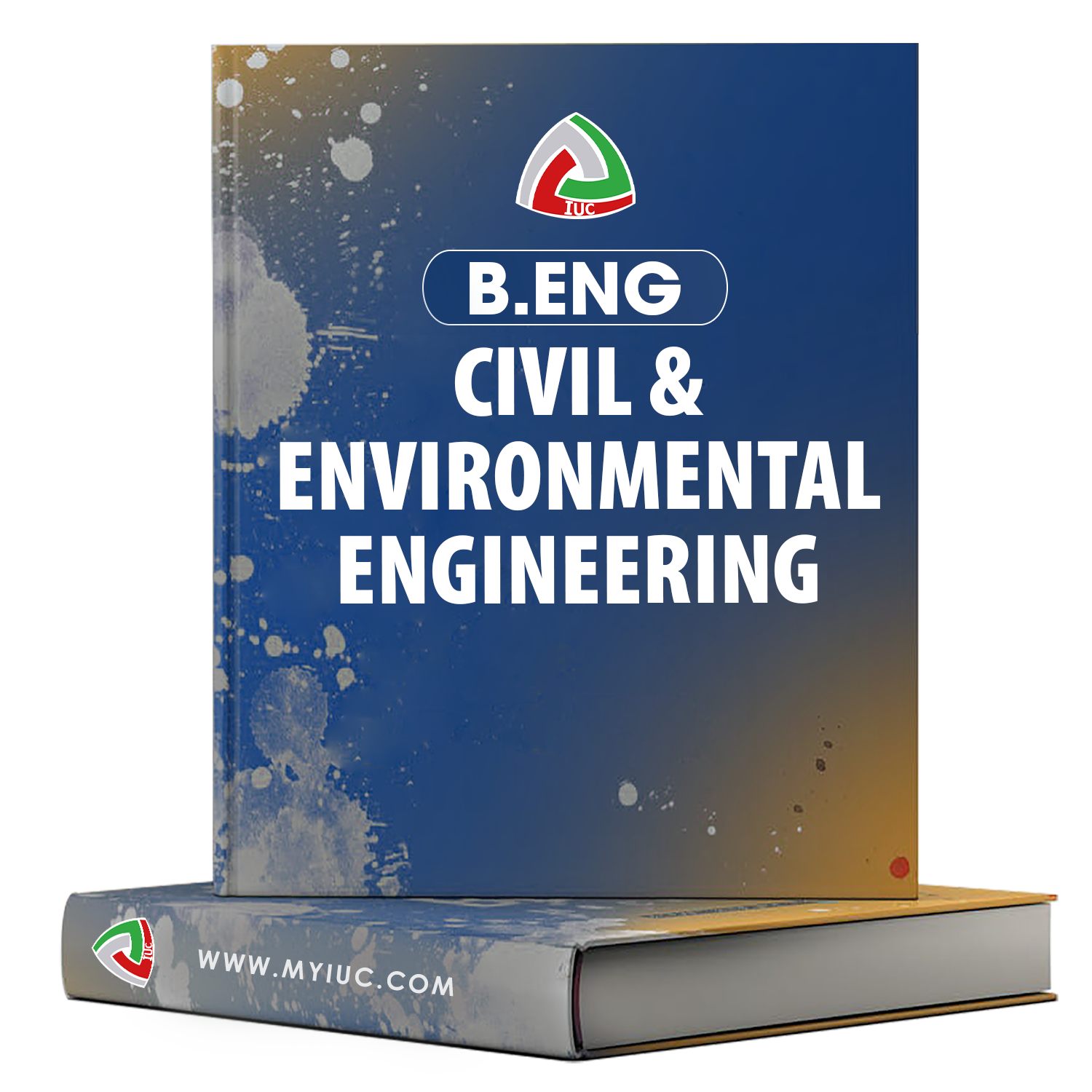Bachelor of Engineering (B.Eng.) in Civil and Environmental Engineering is a comprehensive program designed to equip students with the knowledge and skills needed to design, construct, and maintain the infrastructure and systems that support modern society while addressing the critical challenges of environmental sustainability. This interdisciplinary program combines the principles of civil engineering with the importance of environmental stewardship, ensuring that students can develop solutions that balance the needs for infrastructure development with the protection of natural resources.
| PROGRAMME |
SEMESTRE |
DURATION |
CREDIT |
PARTNER INSTITUTION |
ACCREDITATION |
| CIVIL ENGINEERING |
8 SEMESTERS |
4YEARS |
240 |
UNIVERSITY OF BUEA |
|
CORE OBJECTIVES
1. Develop a Strong Understanding of Civil and Environmental Engineering Principles
- – Core Civil Engineering Concepts : Teach students the fundamental principles of civil engineering, including structural analysis, materials science, geotechnical engineering, transportation systems, and water resources.
- – Environmental Engineering Concepts : Provide knowledge in areas like waste management, air and water quality, environmental sustainability, and renewable energy systems.
- – Systems Integration : Equip students with the skills to integrate civil and environmental engineering practices for sustainable development.
2. Develop Design and Construction Skills
- – Infrastructure Design : Train students in designing civil infrastructure such as roads, bridges, buildings, and water treatment systems, ensuring safety, cost-effectiveness, and functionality.
- – Sustainable Design : Emphasize designing infrastructure that minimizes environmental impact, reduces resource consumption, and promotes sustainability.
- – Project Management : Provide students with knowledge of project planning, budgeting, scheduling, and resource management, essential for successfully executing large-scale civil engineering projects.
3. Foster Understanding of Environmental Impacts and Sustainability
- – Environmental Impact Assessment (EIA) : Teach students how to assess and manage the environmental impacts of civil engineering projects, including pollution control, waste management, and sustainable construction practices.
- – Sustainable Infrastructure : Provide the knowledge to design and build infrastructure that supports sustainability goals, including energy-efficient buildings, green roofs, and low-carbon transportation systems.
- – Climate Change Mitigation : Prepare students to design systems that reduce greenhouse gas emissions and address climate change challenges in infrastructure and urban development.
4. Develop Practical Laboratory and Fieldwork Skills
- – Laboratory Techniques : Provide students with hands-on laboratory experience in materials testing, geotechnical analysis, environmental monitoring, and structural testing.
- – Fieldwork and Surveys : Equip students with skills in conducting site surveys, soil testing, environmental assessments, and monitoring of construction projects.








